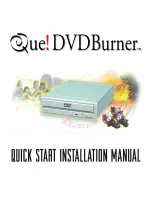
YASKAWA
SIEPYAIH6B01A HV600 AC Drive Bypass Technical Reference
349
–
Frequent deceleration
–
Deceleration time differences
–
Continuous regenerative loads
–
When it is necessary to accelerate again during deceleration
•
Motor loss increases during high slip braking. Use this function when the duty time factor is 5% ED or less and the
braking time is 90 seconds or less. The load inertia and motor characteristics have an effect on the braking time.
•
The drive ignores the configured deceleration time during high slip braking. To stop motors in the configured
deceleration time, set
L3-04 = 4 [Stall Prevention during Decel = Overexcitation/High Flux]
.
•
You cannot use high slip braking to decelerate at user-defined speeds. To decelerate at user-defined speeds, use the
overexcitation deceleration function.
•
You cannot accelerate the motor again during high slip braking until you fully stop the motor and input the Run
command again.
■
Overexcitation Deceleration
Overexcitation deceleration quickly decelerates motors without using braking resistors. This lets you stop a motor
more quickly than with the ramp to stop processes.
Overexcitation deceleration increases excitation current during deceleration to cause a large quantity of braking
torque through motor overexcitation. You can set the deceleration speed to adjust the deceleration time for
overexcitation deceleration.
Overexcitation deceleration lets you accelerate the motor again during deceleration.
Enter the Run command during overexcitation deceleration to cancel overexcitation deceleration and accelerate the
drive to the specified speed.
To enable this function, set
L3-04 = 4 [Stall Prevention during Decel = Overexcitation/High Flux]
.
When
L3-04 = 4
, the motor will decelerate for the deceleration time set in
C1-02 or C1-04
. If the drive detects
ov
[Overvoltage]
, increase the deceleration time.
Notes on Overexcitation Deceleration
•
Do not use Overexcitation Deceleration for these applications:
–
Frequent sudden decelerations
–
Continuous regenerative loads
–
Low inertia machines
–
Machines that have no tolerance for torque ripples
•
Motor loss increases during overexcitation deceleration. Use this function when the duty time factor is 5% ED or
less and the braking time is 90 seconds or less. The load inertia and motor characteristics have an effect on the
braking time.
■
n3-01: HSB Deceleration Frequency Width
No.
(Hex.)
Name
Description
Default
(Range)
n3-01
(0588)
Expert
HSB Deceleration
Frequency Width
Sets the amount by which the output frequency is to be lowered during high-slip braking, as a
percentage of
E1-04 [Maximum Output Frequency]
, which represents the 100% value.
5%
(1 - 20%)
When you must detect
ov [DC Bus Overvoltage]
during high-slip braking, set this parameter to a large value.
■
n3-02: HSB Current Limit Level
No.
(Hex.)
Name
Description
Default
(Range)
n3-02
(0589)
Expert
HSB Current Limit Level
Sets the maximum current output during high-slip braking as a percentage, where
E2-01 [Motor
Rated Current (FLA)]
is 100%. Also sets the current suppression to prevent exceeding drive overload
tolerance.
Determined by L8-38
(0 - 200%)
When you decrease the setting value for current suppression, it will make the deceleration time longer.
Summary of Contents for HV600
Page 12: ...12 YASKAWA SIEPYAIH6B01A HV600 AC Drive Bypass Technical Reference...
Page 74: ...Page Intentionally Blank...
Page 76: ...Page Intentionally Blank...
Page 454: ...5 14 Z Bypass Parameters 454 YASKAWA SIEPYAIH6B01A HV600 AC Drive Bypass Technical Reference...
Page 590: ...8 6 Storage Guidelines 590 YASKAWA SIEPYAIH6B01A HV600 AC Drive Bypass Technical Reference...
Page 780: ...11 3 European Standards 780 YASKAWA SIEPYAIH6B01A HV600 AC Drive Bypass Technical Reference...
















































